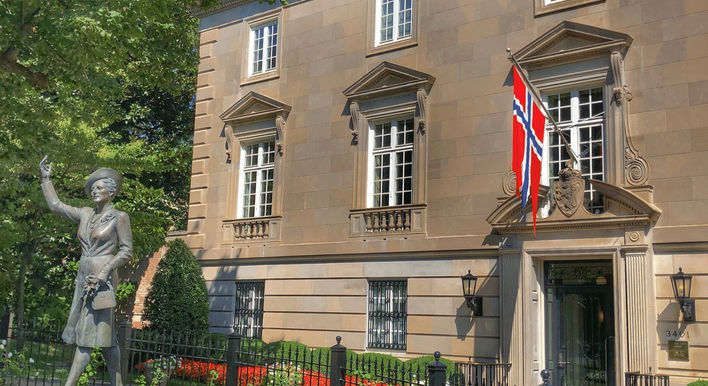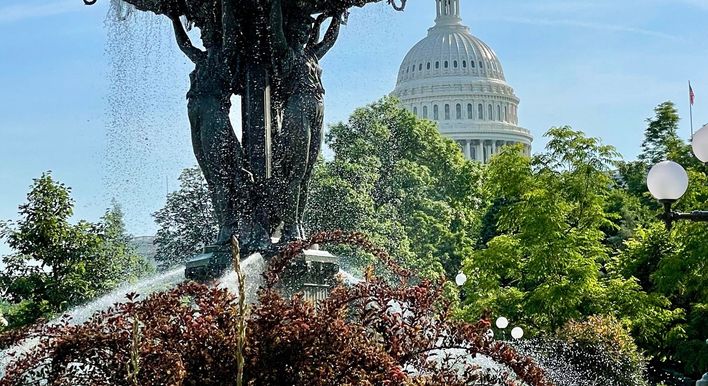In Lincoln Park on Capitol Hill the life of Mary McLeod Bethune is remembered by this sculpture. If you’ve been exploring Washington, you may recognize this sculpture has the distinctive style of Richard Berks, whose also did the Albert Einstein statue outside the National Academy of Science and the bust of John F Kennedy if the foyer of the Kennedy Center.
A tour we think you'll love
This is a large work. It’s seventeen feet tall and as you stand by it, it towers over you. And I think that’s exactly what Berks wanted. Bethune is a towering figure in African American history.
Bethune shows ups in so many places and in events that advance African Americans in mid-20th century America. She’s a college president, an advisor to presidents Roosevelt and Truman, an educator, she’s involved with creating the United Nation’s charter, a leader in numerous organizations, she is everywhere demanding a seat at the table.
The cane depicted in this sculpture is one that was owned by Franklin D. Roosevelt that was given to Bethune by her good friend Elenore Roosevelt after the president died. And in my mind that cane symbolizes the very precarious space where Bethune worked. She had to advocate for the rights of African Americans while working in an administration that while not outright hostile to Blacks the way Woodrow Wilson was, did very little to advance their cause.
Bethune was the only women in a group of forty-five African American men, informally known as the Black Cabinet, which advised FDR. And this is a time where advocating for civil rights is not about protest and marches. She has to push the envelope while operating within a system very resistant to equality. And it gets worse during WWII, when all energy is focused on winning the war. And raising issues like racism is seen as distracting from the war effort and could be labeled unpatriotic.
Bethune is the fifteenth of 17 children, and the first to be born when her parents were free from slavery. Hers is a monumental life. Worthy of this statue and more.





